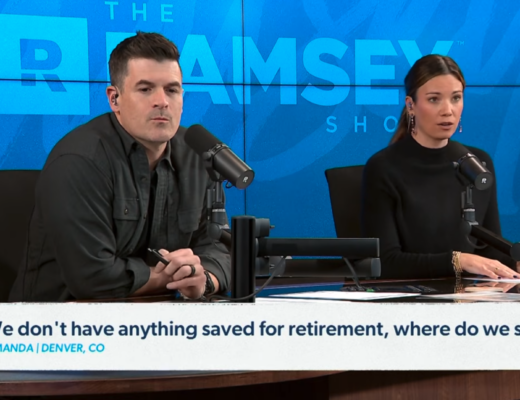I’ve seen it countless times. People who meticulously budget every dollar but still feel financially trapped. Or those who hate budgets so much they avoid financial planning altogether. After years of coaching hundreds of couples, I’ve come to a simple conclusion: budgeting doesn’t work.
Growing up, I was taught that budgeting was everything. Spend as little as possible, save as much as possible, and live a frugal lifestyle. But this approach stems from scarcity thinking, not abundance. It’s why so many people feel stuck despite their best efforts.
Why Traditional Budgeting Fails
For spenders, budgeting feels like punishment. You go from having the financial faucet wide open to turning it completely off. There’s no enjoyment – just strict penny-pinching that doesn’t match your personality. When you inevitably break your budget (because it was unrealistic to begin with), you abandon the whole process, thinking, “Why did I even try?”
For savers like I was, budgeting can become an obsession that actually runs your life. You experience guilt and shame when you spend money on anything – even necessities. I once had a client who tried to convince me he was a spender simply because he paid bills! He hated spending money so much that buying toilet paper felt like failure.
The truth is, neither extreme works. Spenders end up in a perpetual life of hustle, always working to fund their lifestyle with no long-term security. Savers accumulate money but never enjoy it, missing opportunities to use their resources for good.
The Middle Path: Becoming a Financial Steward
What’s the solution? Stop thinking in terms of saving versus spending and start thinking about stewardship. A steward sits between these extremes, understanding that money is meant to be used – not hoarded, but not wasted either.
Money should be used to create more opportunities, to bless your family, and to serve others. As a steward, you recognize that every dollar has a job. Some dollars might be assigned to create memories with your family. Others might be directed toward investments that generate passive income. Still others might fund scholarships or help people in need.
This balanced approach prevents the regret I’ve seen in both extreme savers and spenders. I’ve known people who hustled for decades, made millions, but reached their 70s with nothing to show for it because they never learned stewardship. I’ve also seen savers with millions who can’t enjoy a single dollar without guilt.
The Spending Plan: A Better Approach
Instead of a budget, create a spending plan. But before you do, follow these three steps:
- Track your money for 6-12 months. Use tools like Monarch Money or spreadsheets to categorize all your spending. Do this weekly so it’s manageable.
- Evaluate your spending patterns. Look at the data objectively. Where are you being a wise steward? Where could you improve? Are there areas where you should actually spend more to enjoy life?
- Create your spending plan based on real data. Now you can make a realistic plan because you know your actual spending habits.
This approach works because it’s based on reality, not wishful thinking. For variable expenses like groceries, entertainment, and gifts, you’ll have actual averages to work with instead of arbitrary numbers.
During this process, you might discover you’re spending more than you earn. That’s valuable information! Now you can make targeted adjustments or focus on increasing your income.
Beyond the Spending Plan
Once you’ve mastered your spending plan, you can focus on making your money work harder. That might mean investing in assets that generate passive income or reinvesting in your business or skills.
I learned this lesson the hard way during the recession when I discovered I was $15,000-$16,000 short every month. That reality check forced me to make changes in both my spending and my income strategy.
Remember, the goal isn’t to accumulate money for its own sake. It’s to reach a point where you have enough passive income that you work because you want to, not because you have to. From there, you can create a ripple effect, using your resources to bless others.
So forget budgeting. Start tracking, evaluating, and planning instead. Become a steward of your resources, and you’ll build wealth faster than any budget could ever achieve.
Frequently Asked Questions
Q: How is a spending plan different from a budget?
A spending plan is based on your actual spending patterns rather than arbitrary restrictions. It starts with tracking what you actually spend, then making informed decisions about adjustments. Unlike traditional budgeting which often begins with restrictions, a spending plan acknowledges that money is meant to be used wisely, not just restricted.
Q: What if I discover I’m spending more than I earn?
This discovery is actually valuable information. You have two options: reduce spending in certain categories or increase your income. Most people focus only on cutting expenses, but increasing income is often more powerful. Look at your situation objectively and determine which approach (or combination) makes the most sense for your circumstances.
Q: How often should I review my spending patterns?
For best results, track your spending weekly. This makes the task manageable rather than overwhelming. After you’ve tracked for 6-12 months and created your spending plan, continue to review monthly to make adjustments as needed. Remember that some expenses are seasonal, so a full year of tracking gives you the most accurate picture.
Q: What should I do with surplus money once my spending plan is working?
As a steward of your money, you have many options. You might build an emergency fund, pay down high-interest debt, invest in assets that generate passive income, or create a “freedom fund.” The key is giving every dollar a purpose that aligns with your values and long-term goals. Some of my clients allocate a portion to helping others through scholarships or charitable giving once their own financial foundation is secure.







